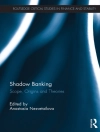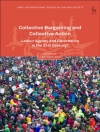Tourism destinations and businesses are becoming increasingly prone to the impacts of crises and disasters due to global environmental change and security risks. This is the first research based book that provides a strategic approach to understanding the nature of tourism crises and disasters before outlining tourism crisis and disaster planning, response, and longer term recovery and knowledge management strategies. It applies a wide range of theoretical perspectives and concepts to improve our understanding of both organisational crises and natural disasters. The book draws on examples from around the world including the USA, Europe, UK, Asia-Pacific and the Middle East. It will be essential reading for tourism academics and students as well as tourism managers and government officials involved in tourism destination management and marketing.
Mục lục
Part A: Setting the Context for Tourism Crisis and Disaster Management
1. Introduction to Tourism Crisis and Disaster Management
2. Classifying and Understanding Tourism Crises and Disasters
3. Strategic Crisis and Disaster Planning and Management
Part B: Tourism Crisis and Disaster Prevention and Planning
4. Tourism Crisis Prevention and Disaster Mitigation
5. Tourism Disaster and Crisis Preparedness and Planning
Part C: Tourism Crisis and Disaster Response, Implementation and Management
6. Coordination, Control and Resource Allocation
7. Crisis and Disaster Communication and Recovery Marketing
Part D: Tourism Crisis and Disaster Recovery, Resolution and Feedback
8. Long Term Recovery and Resolution
9. Knowledge Management and Organisational Learning
10. Conclusion and Reflections on Tourism Crisis and Disaster Management
Giới thiệu về tác giả
Dr Ritchie is a Senior Lecturer in the School of Tourism at the University of Queensland, Australia. His research interests have focused on city and capital tourism, visitor behaviour and tourism marketing. He has also published extensively in the area of tourism crisis and disaster planning, management and recovery, in journals such as Tourism Management, the Journal of Travel and Tourism Marketing and Current Issues in Tourism. He is also co-editor of the Journal of Hospitality and Tourism Management and on the editorial board of four tourism journals including Tourism Recreation Research.












